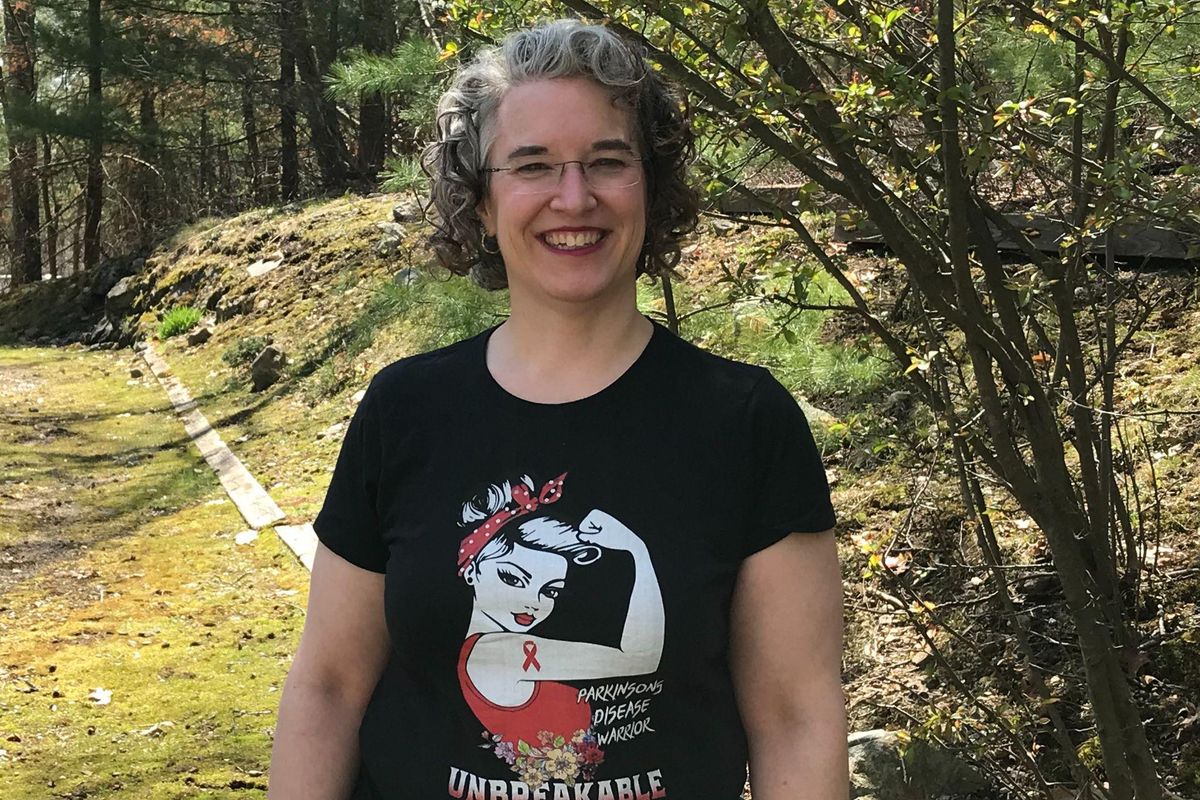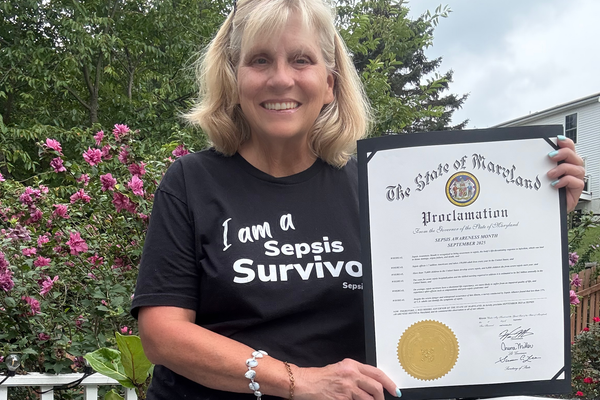As told to Alex Fulton
April is Parkinson's Disease Awareness Month.
At 43, I felt like I'd really found my groove. After my recent divorce, I'd pulled myself back together and restarted my life. I was raising my teenage son. I got a promotion at my job as a social worker. I joined a hiking group. I ran my first 5K. It was a time of personal and professional growth, and I felt really good. Until I didn't.
I first noticed something was wrong while training for my second 5K. Around the two-mile mark on my runs, my right foot would start cramping and twisting. I thought it was kind of weird, but since I don't really like running anyway, I decided I'd just stick to walking after the 5K was done.
Then it started happening when I walked fast. I thought, "Maybe I just need to dial it back a little." But my foot kept getting worse. I saw my doctor, who sent me to a back specialist. I got an MRI of my back and started physical therapy. Nothing helped. A physical therapist happened to notice I wasn't swinging my right arm when I walked, but no one seemed concerned.
Months passed, and my right arm started giving me trouble. It felt weirdly heavy and awkward when I did things like use a computer mouse. I had to switch to an electric toothbrush because I couldn't sustain the back-and-forth motion with my right hand.
At an exercise class one day, I mentioned my arm trouble to a friend who's an occupational therapist. She suggested I see a neurologist, so I made an appointment. Next thing I knew, I was diagnosed with Parkinson's disease. I was 46 years old.
One of my first questions after my doctor said I had Parkinson's was, "Aren't I too young?" I knew about Michael J. Fox — but I didn't think about him in that moment. It turns out, about 10 to 20% of those diagnosed with Parkinson's are under 50 years old (out of roughly 60,000 new cases diagnosed in the U.S. annually) and this is called early-onset Parkinson's.
The diagnosis — delivered flatly without any accompanying information other than instructions to keep exercising — absolutely floored me. I hadn't made the connection between my foot and my arm and wasn't expecting anything more than a pinched nerve or something equally benign.
I left that neurology appointment, got in my car, and cried. Then I called my mom, followed by my therapist. I went home and put on a brave face for my son.
My first step after my diagnosis was to find a different neurologist, a movement disorder specialist who put me on medication that helps control my symptoms. I expanded my exercise routine, adding things like yoga and pilates. Different forms of physical activity help me in different ways, so I try to mix it up.
My second step was to start a support group for women living with Parkinson's disease. I wanted to surround myself with others who shared my experience. Since the type of group I was looking for didn't exist in my home state of Massachusetts, I decided to create one. This is not a disease you want to face on your own.
Women tend to be caregivers. Whether it's our children, grandchildren or partners, we are the ones doing the caring. How do you juggle that when you may not always be able to do everything you used to do? Can you ask for help? These are some of the issues our group talks about.
In many ways, my day-to-day life is the same now as it was before my diagnosis over three years ago. I've made it a goal to continue doing things that are important to me. I'm still working as a social worker, and I got another promotion to clinical director. I try to be mindful of when I need rest so I can continue to do those important things.
I also try to stay focused on the present because spending too much time worrying about my future can be scary. What kind of shape am I going to be in when my son graduates from college? Am I going to be able to hold my grandchild and babysit safely? How long am I going to be able to continue doing the job I love?
Parkinson's has given me an appreciation for where I'm at now. I take opportunities as they come because I don't know if I'll be capable in the future. Putting things off isn't an option. It has also helped me focus on what matters. I've committed myself to the stuff in my life that's worth keeping and ejected everything else.
A lot of language used to describe people with Parkinson's is that we are "victims" who are "suffering" with this terrible disease. Is it a terrible disease? Yes. I have an incurable, degenerative neurological condition. There is no treatment that will take this disease from my body. While I might not die from Parkinson's (because it's not considered a terminal disease), I will die with Parkinson's. But that does not mean I'm a passive victim.
When people are diagnosed with cancer, they are said to fight, to battle. When they no longer have cancer, they've won, and when they die we say they've lost a long battle with cancer.
I'm a person living with Parkinson's. I fight every day, not to be cured (though that would be nice), but to live a life that's as fulfilling, meaningful and healthy as possible. I battle to maintain my functioning.
Do I suffer? Sometimes. This is a life-altering diagnosis, and my future is very uncertain. Sometimes I feel angry or sad, and that's OK. I just try not to let those feelings take over.
But I believe suffering is the story we tell ourselves about our experience. I see suffering every day as a social worker, and my job is to try to help people move through that. I'm not suffering now.
I have Parkinson's. I've made space for it in my head. It's my companion. I don't like it, but I'm not suffering. That can always change, but I prefer language that is empowering.
I didn't choose to have Parkinson's, but I can choose how I'm going to live with it.
Liz Brouillard is an Aware in Care Ambassador for the Parkinson's Foundation.
Resources:
Parkinson's Foundation Newly Diagnosed Program
The Michael J. Fox Foundation







